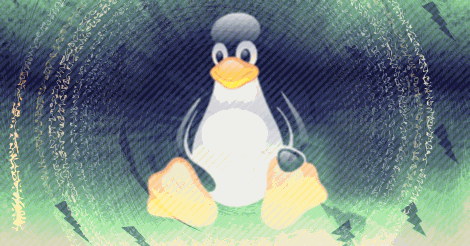Ubuntu 18.04 LTS to Ship With GNOME Instead of Unity
About the future of the Linux desktop, and Ubuntu's shift back to GNOME.

Edited: 2017-04-11 01:12

Mark Shuttleworth recently announced in a blog post that Ubuntu 18.04 LTS will ship with GNOME instead of Unity. Further investments in Unity will apparently end.
This is a major move for the Ubuntu distribution, and no doubt, it will loose some of what made it stand out among the other distributions.
The good news is that the Desktop will likely get more attention as a result, the bad news is that convergence is likely to get less attention. Soon after the announcement, UBports declared continued community support for Unity and Touch, so it might not actually be the end of Unity.
The state of the Linux desktop
I almost exclusively use Linux for all of my daily work, and even for entertainment (Mainly Netflix, YouTube), so in this sense I think Linux is a success on the desktop, and very much alive and thriving to me. But there is still room for improvements.
We need to make things easier for the casual user. Even basic things, such as adding a launcher to the desktop or quick-launch toolbar can be difficult for new users. In addition to these, small, unintended annoyances, some desktop environments does not allow placing of icons on the desktop out-of-the-box, which is really a bad development. Users are using the desktop not only for launchers, but also for other things. If you are going to remove a feature like this, then you better have a better alternative ready.
Personally I rarely place launchers on the desktop. I prefer using either the Unity side panel, Dash in Ubuntu, or the global search in GNOME. But I still use the desktop for other things, such as my current projects, and when I am done working on them, I move the files from my desktop to the cloud.
I also think Nautilus should be replaced by a more feature-rich file manager, such as Nemo. The reason for this is mostly the "Open as Root" and "Compact View" features. Compact view actually used to exist in Nautilus as well, but was later removed. This begs the question: Why are we moving backwards?
Keeping the eyes on the price
I think we should focus more on development of new features, fixing bugs and crashes, and only very rarely, remove existing features that work well. There are plenty of programs for Linux, where there is a huge future demand, one of such areas is video editing. Currently I personally use Kdenlive, but it is plagued by bugs, and non-intuitive behaviour. I still use it, because I know how to get around most of the problems, but the casual user would simply give up, only to move back to mac or Windows for video editing work.
Simplicity is usually a good thing. We do not want things to be unnecessarily complex with customization options, but at the same time it also should not sacrifice useful productivity features. I think Compact view is a good example of a useful feature, which was sadly removed from Nautilus.
We also have to keep in mind that we are working with Linux, and with that comes issues with permissions. In other words, we need to improve how file managers handle, and change file permissions. Nemo's Open as root is nice feature for system administrators, because we often need to change files that are owned by root. An example would be the /etc/hosts file, and server configuration files.
Obviously the terminal allow us to do much of this fairly fast, and easily (given we memorized the commands). I usually use the terminal, but I often still prefer using GUIs when they are available. The casual users will run into a lot of different problems due to limitations and bugs with GUIs, and I think we should aim to fix those.
Linux is wonderful
Linux is simply awesome. The more I use it, the more I love it. I love the fact that it is free, and open source. If Linux development is slow when it comes to certain programs, then it does not really matter, as long as we are making progress. Eventually free alternatives will catch up with commercial programs, at witch point, they will no longer be able to compete.
This is why I think Linux could be destined to eventually dominate all platforms. Simply because companies can not compete with free. I am not much in support for the whole anti-proprietary software ideology, but recent problems with Windows 10 had me grow more fond of open source.
I think we are already starting to see it happen in some areas, for instance, video software such as OBS, VLC player, and Handbrake. The free programs are reaching a point were it makes very little sense to buy the commercial alternatives.

Tell us what you think: